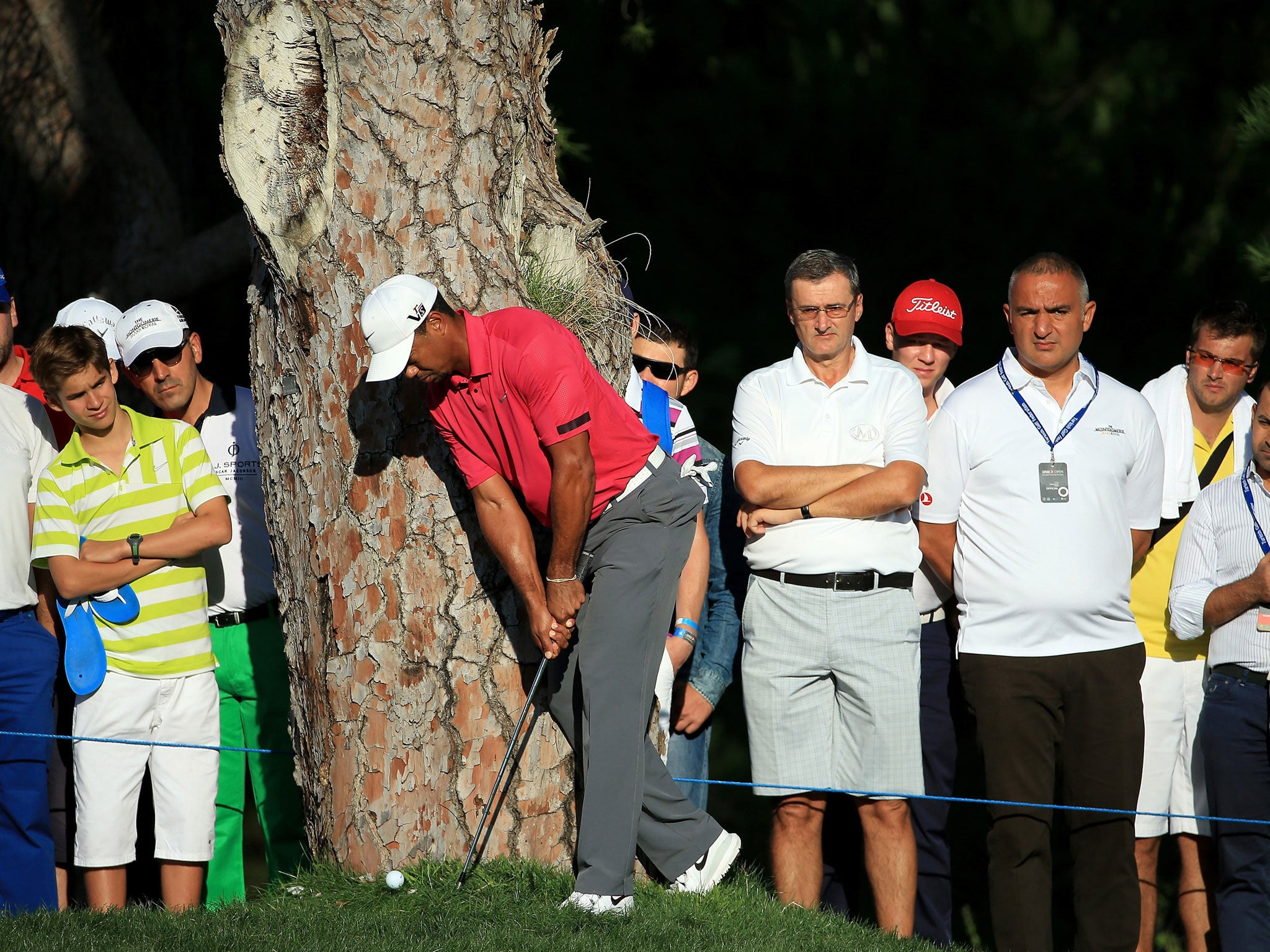Comment: Why is Tiger Woods the greatest of all time? Because he shows all the nerves of a tightrope walker crossing a gorge
The Way I See It: In such moments Woods displays a visceral desire to engineer positive outcomes

String a tightrope across a tennis court and ask a circus performer to walk the walk, he might throw in a somersault or two for special effect. Thread the same piece of reinforced washing-line across Cheddar Gorge and he might throw a sickie. Same discipline, different challenge. This is an analogy often used by Stirling Moss to help lay people comprehend what separates the great from the good in a sporting context. In key moments, when the demand is at its highest, the greats put their foot down and still keep the car out of a wall.
Some use sports psychologists to combat the strictures of a restless psyche. Others, to borrow from the machismo-loaded lexicon of the sporting jock, just get it done. Here in Turkey, Tiger Woods demonstrated yet again to which category of performer he belongs and why he might just be the greatest golfer of all time. Well, it’s either him or Jack Nicklaus, right?
Woods’ brilliance was revealed not necessarily in the good stuff he did, but in his refusal to buckle when his game turned bad. We have seen this time and again in his career but it never fails to electrify when you witness it close up. I recall his return to tournament golf at the Masters in 2010 when the scrutiny, post-Thanksgiving morality tale, was at its height. Yes, that would be four months without hitting a competitive shot. Somehow Woods finished fourth that week. To understand how that was possible I only have to take you to Augusta’s par-five eighth hole, where Woods had tugged his tee shot left into the great Georgia pines.
The conventional solution was to chip out sideways, smash an approach as close to the green as possible and hope to save par. Woods reached for a fairway metal, threaded the ball through the trees with so much spin it turned at right angles before advancing up the fairway, giving him a chance to reach the green in three and shoot for birdie. He could not have been under greater pressure yet he produced a stroke of genius with apparent ease.
On Saturday, after a thrilling course-record 63 on Friday, Woods was nowhere near his best. He began with two birdies in his opening three holes but it was a beast of a job to keep his card afloat. At the par-five 11th he was deeply out of position, his ball in scrubland a metre from a tree. The room to swing was severely compromised yet he reached once more for the 3-wood and, despite crashing the shaft painfully into the trunk, fashioned a miraculous outcome to walk off the green with a birdie.
The par-five 18th was even more of a mess, so far left that he had to hit a provisional. It would have been a mercy were he to have lost his ball but he found it deep in a thicket of trees. You know what happened next. He walked off the green with a four after sending a 20-footer through the shadows, over a ridge and into the centre of the cup.
In these moments Woods displays a visceral desire to control the environment, to conquer circumstance, to engineer positive outcomes from the most unpromising of circumstances. This is not always enough to win, but it ensures that in any contest you will have a chance.
This was his first competitive knock for a month, his first strokeplay event in six weeks. He never quite got close enough to threaten victory yesterday but at times during the week he made the citizens of the leader board shiver. So many sporting careers fail to progress for the lack of this critical quality Woods possesses. How does something that is supposed to be recreation, fun even, become a curse?
The reflections of flat-track thunderer Graeme Hick made revealing reading last week. If ever there were a batsman made for plunder it was the heavy-handed hitter from Harare. Yet when called to produce on the big stage, Hick could never locate his mojo. It was painful to witness a great player reduced to something less than the sum of his parts.
It troubles him still when asked to reflect on why he shrank from the challenge. It had nothing to do with his ability to hit a cricket ball and everything to do with his inability to get out of his own way under exam conditions. Enter Victor Dubuisson, whose five-shot lead in Turkey weighed like a cannonball chained to the ankle.
Dubuisson couldn’t miss on Saturday, lighting up the Montgomerie course with a succession of birdies. Yesterday he could barely hold the club, such was the weight of what he stood to lose. With three to play he was level alongside two players he had led by eight at the start of the day. He edged home by two in the end. Same discipline, different challenge.
Subscribe to Independent Premium to bookmark this article
Want to bookmark your favourite articles and stories to read or reference later? Start your Independent Premium subscription today.

Join our commenting forum
Join thought-provoking conversations, follow other Independent readers and see their replies